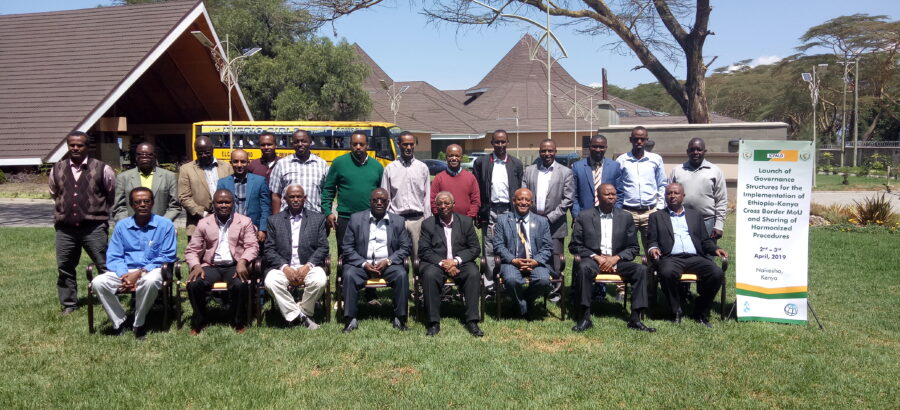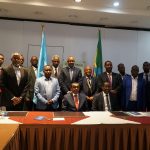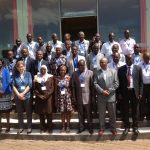In August, 2018, IGAD Center for Pastoral Areas and Livestock Development (ICPALD) with financial support from USAID facilitated for Ethiopia and Kenya to develop an implementation framework (IF) to operationalise the signed MoU on cross-border cooperation and coordination on animal health and sanitary measures. The IF put in place coordinated arrangements that included establishment of joint steering committees (JSC) at national level and multidisciplinary technical committees (MTC) at sub-national levels to follow up and monitor implementation of agreed activities under various strategic objectives. As a follow up, a bilateral workshop was convened with financial support from the World Bank funded Regional Pastoral Livelihood Resilience Project (RPLRP) to officially launch the two committees (JSC & MTC) and agree on harmonized procedures. The meeting was attended by JSC and MTC members from the Ministries of the two countries responsible for animal resources and bordering regional states and countries and implementing partners/projects ; namely, FAO, DRC, VSF-G and GIZ.
Dr. Michael Cheruiyot officially opened the meeting on behalf of the Chief Veterinary Officer, Kenya. He reminded participants on the significant role of the MOU in creating an enabling environment to prevent and control Trans-boundary Diseases in a coordinated manner and facilitate uninterrupted trade in livestock. The meeting was also addressed by Dr. Alemayehu Makonnen, the CVO, Ethiopia and Dr. Solomon Munyua, the Director of ICPALD. The meeting made the following recommendations and way forward;
Recommendations and way forward
- Governments of Ethiopia and Kenya should use the upcoming events to continue popularizing the MOU signed by Ministers and endorsed implementation framework to development partners, policy makers (national/ federal and regional/ county governments) and other stakeholders along the livestock value chain for buy-in and contribution for achieving the objectives ;
- ICPALD should support cross border meetings to evaluate effectiveness of disease control activities and lessons learnt between the two countries,
- Ethiopia and Kenya should develop a harmonized disease vaccination calendar and implement along the border
- ICPALD should share a template with the two countries for sharing progress reports on cross-border animal health activities on a quarterly basis,
- JSC and MTC should continuously advocate for national/ regional or county resources (from existing budget and manpower) and develop bankable proposals for resource mobilization from development partners to complement the two government efforts to implement activities in the IF among others,
- Future JSC and MTC meetings should consider participation of coordinators of non-cross border programs to build synergy for efficient delivery of services,
ICPALD expresses appreciation to the RPLRP project /World Bank for funding this activity






